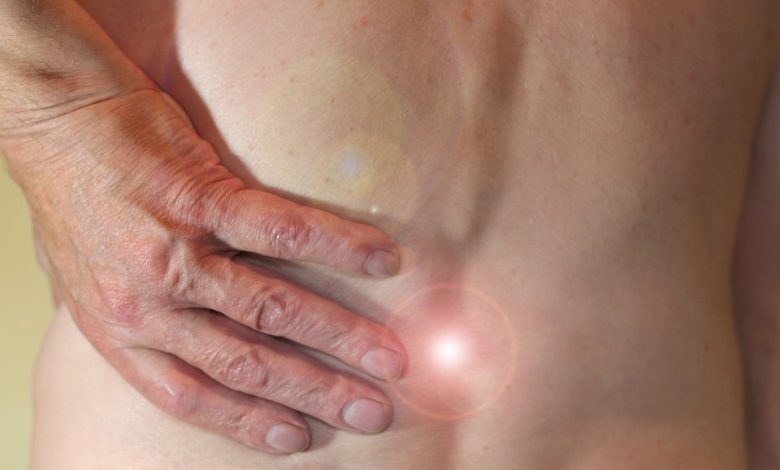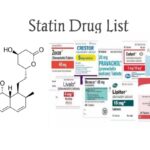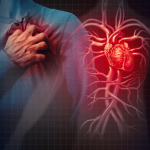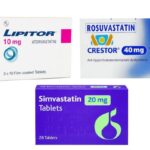Which Statin Is Least Likely To Cause Muscle Pain?

Statins are a group of medications commonly used to lower cholesterol levels and reduce the risk of heart disease. While they are generally well-tolerated, some people may experience muscle pain or weakness as a side effect. This is known as statin-associated muscle symptoms (SAMS), and it can range from mild discomfort to severe muscle damage.
The exact cause of SAMS is not fully understood, but several factors have been suggested. One theory is that SAMS is related to the inhibition of the mevalonate pathway, a biochemical pathway in the body that is important for the production of cholesterol and other compounds. Statins work by blocking an enzyme called HMG-CoA reductase, which is a key enzyme in the mevalonate pathway. This inhibition can disrupt the production of certain compounds, including coenzyme Q10, which is important for muscle function.
Another theory is that statins may cause damage to muscle cells by interfering with the production of energy in the cells. This can lead to the breakdown of muscle tissue and the release of certain enzymes into the bloodstream, causing muscle pain and weakness.
However, not all people who take statins experience SAMS, and the reasons for this are not fully understood. Some studies have suggested that genetic factors may play a role in determining whether or not someone is susceptible to SAMS. Other factors, such as age, sex, and the use of other medications, may also influence the risk of developing SAMS.
Full List Of Statins That Are Least Likely To Cause Muscle Pain
The risk of SAMS varies among different statins, and some are less likely to cause muscle pain than others. The following is a list of statins that are least likely to cause SAMS:
1. Rosuvastatin (Crestor) – Rosuvastatin is a potent statin that is commonly used to lower cholesterol levels. It has a low risk of causing SAMS compared to other statins. In clinical trials, the incidence of muscle pain and weakness with rosuvastatin was similar to that of placebo.
2. Atorvastatin (Lipitor) – Atorvastatin is another potent statin that is commonly used to lower cholesterol levels. It has a slightly higher risk of causing SAMS compared to rosuvastatin, but it is still less likely to cause muscle pain than other statins.
3. Pitavastatin (Livalo) – Pitavastatin is a newer statin that has a lower risk of causing SAMS compared to other statins. In clinical trials, the incidence of muscle pain and weakness with pitavastatin was similar to that of placebo.
4. Fluvastatin (Lescol) – Fluvastatin is an older statin that has a lower risk of causing SAMS compared to other statins. In clinical trials, the incidence of muscle pain and weakness with fluvastatin was similar to that of placebo.
5. Pravastatin (Pravachol) – Pravastatin is an older statin that is commonly used to lower cholesterol levels. It has a lower risk of causing SAMS compared to other statins. In clinical trials, the incidence of muscle pain and weakness with pravastatin was similar to that of placebo.
It is important to note that the risk of SAMS varies among individuals, and some people may still experience muscle pain or weakness with these statins. Additionally, the risk of SAMS may increase with higher doses of statins, older age, female sex, and certain underlying medical conditions, such as kidney disease and hypothyroidism.
If you experience muscle pain or weakness while taking a statin, it is important to talk to your healthcare provider. They may recommend switching to a different statin or adjusting your dosage. In some cases, they may also recommend additional testing to rule out other underlying causes of muscle pain, such as a muscle injury or a metabolic disorder.
In summary, rosuvastatin, atorvastatin, pitavastatin, fluvastatin, and pravastatin are statins that are least likely to cause SAMS. However, the risk of SAMS varies among individuals, and some people may still experience muscle pain or weakness with these medications. If you experience muscle pain or weakness while taking a statin, it is important to talk to your healthcare provider to determine the best course of action.
How To Reduce Muscle Pain With Statins
Although muscle pain is a common side effect of statins, there are tips that may help reduce muscle pain while taking statins:
- Talk to your doctor: If you experience muscle pain while taking statins, speak with your doctor. They may adjust your medication or dosage to alleviate the symptoms.
- Consider taking a break: Taking a short break from your statin medication may help to reduce muscle pain. Talk to your doctor before stopping or reducing your medication.
- Try Coenzyme Q10 supplements: Some studies suggest that taking Coenzyme Q10 supplements may help to reduce muscle pain caused by statins. However, it’s important to discuss this with your doctor before starting any new supplement regimen.
- Stay active: Regular exercise may help to reduce muscle pain. However, be sure to start slowly and gradually increase your activity level.
- Stay hydrated: Dehydration can make muscle pain worse, so be sure to drink plenty of water throughout the day.
- Use heat or cold therapy: Applying heat or cold to the affected area may help to reduce muscle pain. Try using a heating pad or taking a warm bath, or applying an ice pack to the affected area.
Remember, if you experience severe or persistent muscle pain while taking statins, be sure to speak with your doctor. They can help you find the best course of action to alleviate your symptoms.





